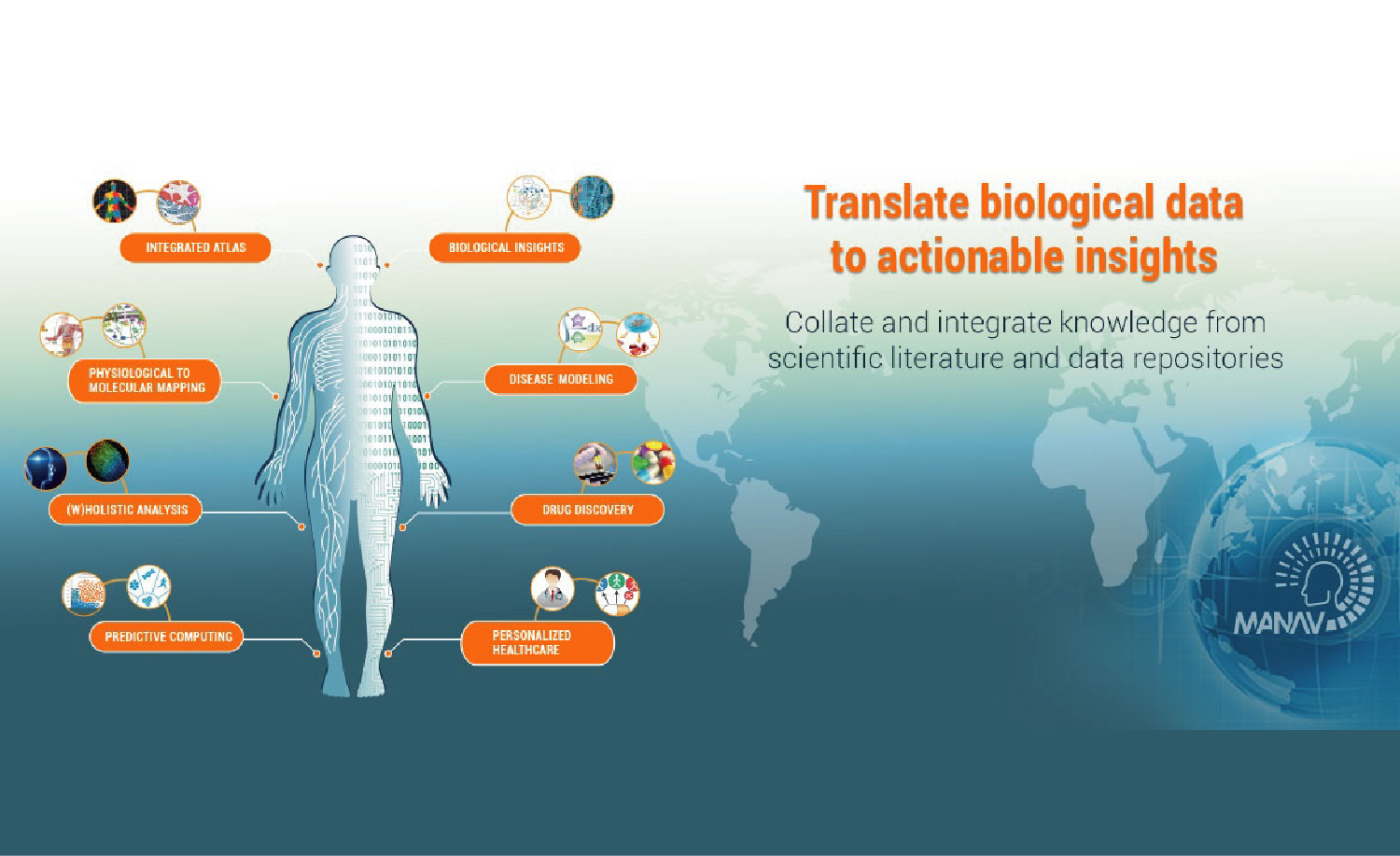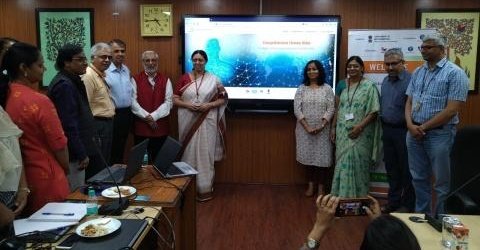The MANAV
Project aims to create an open and interactive atlas of human biology,
compiling, curating and synthesizing data at the molecular, cellular,
tissue and organismic level from scientific literature and public
databases. The project was launched in New Delhi on 10 May 2019.
 |
| MANAV- A citizen science based human Atlas project |
The name MANAV derives from a Sanskrit word which means “Man”. This one-of-a-kind mega-project aims to create a unified human atlas by mapping the molecular details of every cell, tissue and organ in the human body by curating all the available information present in scientific literature and public databases.
MANAV is funded by DBT and co-funded by the technology company Persistent Systems. It will be executed by two of India’s major research Institutes, Indian Institute of Science Education and Research (IISER), Pune, and National Center for Cell Sciences (NCCS), Pune, with technical support from Persistent Systems.
The launch of this project was attended by Anil D. Sahasrabudhe, Chairman, All India Council for Technical Education (AICTE), Shekhar C. Mande, Director General, Council of Scientific & Industrial Research (CSIR), representatives from Biotechnology Information System Network (BTIS) and other autonomous institutions of DBT apart from the team MANAV.
Renu Swarup, while congratulating the MANAV team on the launch, said that this is an ambitious project and will not only create a huge resource for research community but also be instrumental in encouraging a curiosity-driven education system which we are losing in our current curriculum-driven mode of education. She suggested that every DBT program focused on students and educators should get connected with the Manav program. However, she cautioned that given the large scale of this project there could be a lot of distractions and it is important that focus is not lost during the process of execution and implementation.
The idea of MANAV stems from the need to collate the plethora of human biological data that exists on in public databases in scattered and disjointed form. Structuring such unstructured data would help us attain a holistic view of how changes at the molecular level affect the organ and human body. It would also help in pinpointing gaps in our current knowledge towards which our future research goals can be directed. Eventually, such a database would be used by researchers for disease modelling, drug discovery and personalized healthcare.

With over 14 million scientific papers, 48000 protein entries and 16000 disease points in separate databases and repositories and a limited workforce, this task may appear daunting. Therefore, this project, also dubbed as a “biological hackathon”, would hinge on training and utilizing India’s large network of life science students and researchers.
It has been proposed that via a citizen science approach, around 3 – 5 lakh students enrolled in various biological courses in India can be made a part of achieving this goal. While undergraduate and post-graduate students can be trained to extract and collate information at the organ, tissue, cellular and molecular level from published literature for making the human atlas, young researchers and senior scientists can keep a check on the quality of collated data. The project would, therefore, be able to enhance capacity building and networking within the biological community of India alongside creating a quality research database.
Sharing his thoughts on the project, LS Shashidhara, Professor at IISER Pune and one of the mentors of MANAV project , said that he expects that through this project intelligent students will get training in reading a research paper in entirety, which would not just help them understand research methodology but also teach them how to connect seemingly disconnected things.
He added that the first organ taken up for in-depth study in the project is the skin, which happens to be the point of entry into the body and is symbolic of the MANAV project. He also emphasized the need to take the project to the length and breadth of the country for a wider reach. He feels that IndiaBioscience, through its network of researchers and educators, can be one such platform to spread the word about this project.
More details about this project are available at manav.gov.in. The MANAV team is led by Suchita Ninawe from DBT, Abhay Jeere from MHRD, Nagaraj Balasubranium from IISER Pune; Gopal Kundu from NCCS, and Anamika Krishanpal from Persistent Systems.












0 Comments:
Post a Comment